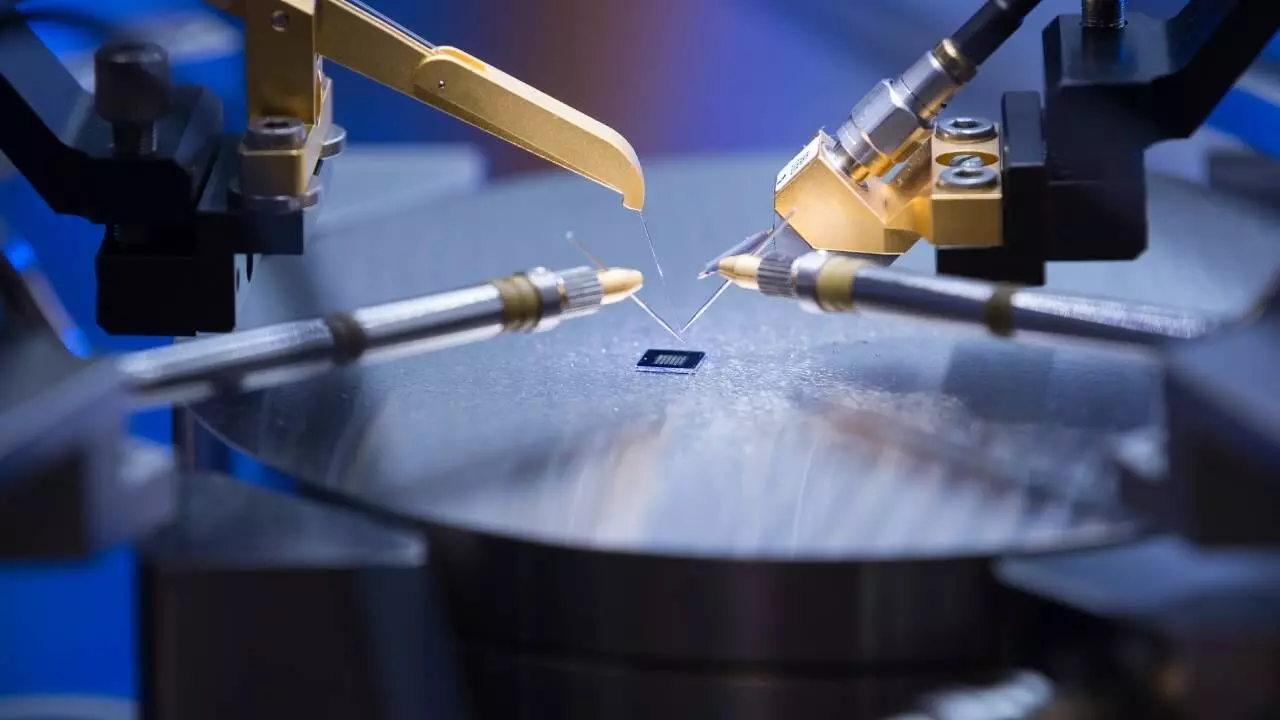Tech majors make a beeline to India
Through incentivizing domestic manufacturing, India fostering partnerships with other countries, and promoting a more secure global supply chain network
image for illustrative purpose

Mumbai The Covid-19 pandemic has brought to light the vulnerabilities of global supply chains, particularly those heavily reliant on China. Disruptions in critical goods and components supply have raised concerns about overreliance on a single country and the imperative need to ensure resilience. The economic impact of the pandemic, coupled with geo-political tensions between China with US and India respectively, has further underscored these concerns.
Last year, the world witnessed how TV manufacturers were compelled to purchase from a single source as China’s open cell companies raised prices by a staggering 150 per cent. This lack of alternative options shed light on the risks associated with concentrated production. Furthermore, the ongoing trade dispute and rising tensions between the United States and China have heightened concerns about relying too heavily on China for critical technologies, goods, and components. The fear of intellectual property theft and forced technology transfers has become an urgent issue requiring immediate attention.
Talking to Bizz Buzz, Avneet Singh Marwah, CEO of Super Plastronics, says: “The Covid-19 pandemic has highlighted the importance of semiconductor technology, leading to increased global demand and supply chain disruptions. Recognizing this, India has been actively seeking investments from semiconductor companies to capitalize on this opportunity and enhance its position in the global semiconductor market.”
Semiconductor industry is dynamic, and its wafer fabrication manufacturing facilities are a priority area. Therefore, GoI gas launched a scheme like PLI to provide financial incentives to companies for setting up semiconductor fabrication units in India,” he added.
National security is also a significant consideration in addressing these vulnerabilities. Industries such as semiconductors, advanced electronics, and telecommunications play a crucial role in national security. Dependence on Chinese-made components in these sectors raises concerns about the potential compromise of sensitive information and infrastructure.
To safeguard national interests and enhance economic competitiveness, the United States has implemented various measures. The country is incentivizing domestic manufacturing through tax reforms, investments in research and development, and infrastructure improvements. These initiatives aim to reduce dependence on Chinese manufacturing, protect American jobs, foster innovation, and maintain a competitive edge in strategic industries.
Recognizing the importance of diversifying supply chains, the United States is actively pursuing partnerships. Micron Technology recently entered into a Memorandum of Understanding (MoU) with the Gujarat government in India, signaling a $2.74 billion investment in India’s semiconductor unit. This investment will create 5,000 jobs in Sanand for the assembly and packaging of integrated circuits and memory modules.
India is poised to open a second round of applications for semiconductor chip manufacturing under a $10 billion incentive package. The Indian government is also engaged in advanced talks with four global chipmakers, including New York-headquartered Global Foundries and a South Korean semiconductor firm, to set up fabrication units in the country.
Furthermore, the United States is actively engaging with like-minded countries to promote a more secure and resilient global supply chain network. Through initiatives such as the Quad and increased collaboration with European allies, the country aims to build a network of trusted partners for critical industries.
The Dutch government has announced its intention to impose additional restrictions on the export of machines used in the production of advanced processor chips, aligning with a US initiative to limit China’s access to chip-making materials. Dutch Minister for Foreign Trade and Development Cooperation Liesje Schreinemacher outlined these proposed limitations, which complement existing export controls on semiconductor technology.
The United States is taking proactive steps to address concerns surrounding supply chain vulnerabilities. The Covid-19 pandemic and geo-political tensions have exposed the risks of overreliance on China and emphasized the need for diversification. Through incentivizing domestic manufacturing, fostering partnerships with other countries, and promoting a more secure global supply chain network, the United States aims to strengthen its supply chains, protect national security, and maintain economic competitiveness. These efforts will not only safeguard American jobs but also promote innovation and ensure stability in the face of future challenges.

